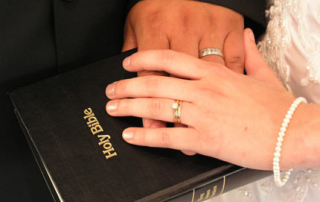You ask two important questions about raising children. First, how do we handle our emotions, especially the negative ones, when we are taking care of children? All parents become frustrated and overwhelmed at some point with their children. Being a parent is hard. Sometimes, our reactions and emotions are not always what we would like. Is it wrong to become angry or stressed?
I would answer that with another question – what is God’s expectation or standard for those that follow Him? Proverbs 16:32, “He who is slow to anger is better than the mighty, and he who rules his spirit, than he who captures a city.” James 1:19-20 “But everyone must be quick to hear, slow to speak and slow to anger; for the anger of man does not achieve the righteousness of God.” God wants us to manage our emotions – especially when parenting. As a parent, I know that is easier said than done. We are imperfect human beings, and often our first reaction is not always the correct one. When dealing with a misbehaving child, we can easily become angry. Even if this is our first reaction, the most important thing is what we do next. Do we act on that angry feeling? The key is that we do not continue in a spirit of anger. Instead, we need to find a way to change our attitude to one filled with love and compassion. Here are some suggestions on how to move past that initial reaction: 1) stop and take some deep breaths until you are able to return to reason, 2) take a moment to say a prayer for help to be patient and show love, or 3) if you are boiling over and cannot handle the situation, simply get up and walk to another room. Take the time to regain your composure.
Is it wrong to discipline children? No, as long as we are following God’s principles. Hebrews 12:5-8, “And have you completely forgotten this word of encouragement …’My son, do not make light of the Lord’s discipline, and do not lose heart when he rebukes you, because the Lord disciplines the one he loves, and he chastens everyone he accepts as his son.’ Endure hardship as discipline; God is treating you as his children. For what children are not disciplined by their father? If you are not disciplined—and everyone undergoes discipline—then you are not legitimate, not true sons and daughters at all.” (NIV)
As believers, we can expect discipline in our lives. If our heavenly Father disciplines us, then it is right for us to provide discipline for our children. Thayer’s Greek dictionary gives the definition of discipline as “to train children, to be instructed or taught or learn, or to cause one to learn.” The goal of discipline is not punishment for the sake of punishment. Instead, we need to teach our children the way they should behave, act, and treat others. Many times this can be accomplished simply by helping our children to repeat what our rules and expectations are. We could take them aside and ask them to tell us how they should behave. Then we could give them another try to behave correctly. An alternative option is to give them a time out and permit them to return only when they have an improved positive attitude.
Sometimes our children’s actions or behaviors will warrant consequences. Consequences should be communicated to a child before they are handed out. The consequence should be related to what was done wrong, should be reasonable, and should be fair. Ultimately, when we discipline our children, it should be done with an attitude of love and with the intention that our children learn the way in which they should go (Proverbs 22:16). Remember, our children are imperfect just like us. When they make a mistake, isn’t it better for them to make it in a loving and safe environment with us where we can show them the right way?
Managing our emotions and providing appropriate discipline for our children is not easy. We will mess up, and we will fail. When we do, we must remember to seek forgiveness – forgiveness from our Heavenly Father and forgiveness from the child. We must also be able to forgive ourselves. After we have done this, we need to get back up and examine where we can improve. Think of specific actions or strategies you can use for the next time you encounter the specific situation with your child. As a parent we know at this point that our children will never cease to amaze us with the goofy mischief they can bring about – sometimes we just need to laugh.











